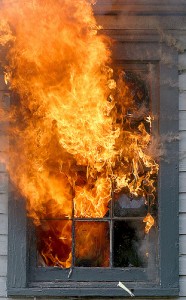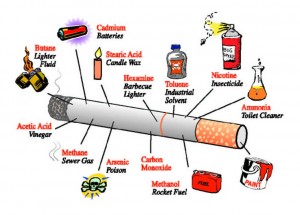Posted by Teresa on January 29, 2011 under Landlord Tips | 
 Landlords are generally responsible by law to provide sufficient heating for tenants—so what happens when the utility company is getting ready to shut off the heat in one of your units? Most leases cover who’s responsible for utilities; some pay their tenants’ landlords utilities, while others require tenants to set up their own accounts with utility providers.
Landlords are generally responsible by law to provide sufficient heating for tenants—so what happens when the utility company is getting ready to shut off the heat in one of your units? Most leases cover who’s responsible for utilities; some pay their tenants’ landlords utilities, while others require tenants to set up their own accounts with utility providers.
Most landlords are concerned for their tenants’ well-being, but of must also think of potential property damage that can be caused when a unit goes without heat in the middle of winter, like freezing and bursting pipes, and water damage.
Here are a few general answers to the question, “What can I do if my tenant’s heat is cut off?”
When in doubt about legal questions, check with your legal advisor. This blog is not intended to be a source of legal advice.
1. Landlords are not responsible for a tenant’s legal or financial obligations. If they are required by the lease to keep heat on in the unit, and they fail to pay the bill until the utility is forced to terminate service, they are responsible.
2. Your tenant is also responsible for subsequent damage to your property as a result of their negligence. While it may seem like adding insult to injury, it’s simply the consequence of the tenant breaking a legal agreement.
3. Prevention is the key. You do not want to find out about a tenant with utility issues from the downstairs tenant, who calls to report water dripping through the ceiling. Make arrangements with the utility company that any service shut-off notifications are sent to you.
4. Take another look at your lease agreement. Be sure that it states that heat is required in the unit to protect pipes, etc. from damage, and that failure to heat the unit is cause for eviction.
Don’t allow a simple lack of preparation to cause unnecessary damage to your rental property. Make sure you know what’s going on with your tenants and set up notifications with the utility companies that service your properties.
Posted by Teresa on January 11, 2011 under Landlord Tenant Lawsuits, Tenant Screening & Background Checks | 
 You’re probably familiar with the news story about a house in Escondido, CA, where the resident is accused of making bombs and plotting bank robberies. Because of danger to neighbors, the decision was made to burn the house completely to the ground.
You’re probably familiar with the news story about a house in Escondido, CA, where the resident is accused of making bombs and plotting bank robberies. Because of danger to neighbors, the decision was made to burn the house completely to the ground.
Now the question is, “Who’s responsible for the compensating the property owners?” While the county made the decision to destroy the house in the interest of public safety, where did that leave the owners of the home, who rented it to the accused bomb maker? Should the owners’ insurance company reimburse them for the loss? Or is this a necessary expense of the taxpayers of San Diego County, who are already burdened with the expenses of removing the hazard and the resulting cleanup?
Obviously, the accused man, George Jakubec, bears the full responsibility for his actions. But it’s doubtful he’ll have the ability to repay the homeowner. Some say the landlords should be responsible for their loss and to the county for all expenses because of negligence—that they should have known of this tenant’s activities. Questions have arisen about whether proper tenant pre-screening and periodic inspections were conducted.
However, there is no proof that the landlords didn’t screen the tenant prior to signing a lease. Even if they had, the suspect’s crime record has not been released, so we don’t know whether or not he had a criminal record that would have prevented the landlord from renting the property to him.
Most landlords know that their tenants have the right to peaceful habitation, without harassment or unnecessary inspections. However, landlords who care about their properties schedule periodic maintenance to not only protect the property value, but to ensure that illegal or dangerous activity is not taking place.
In the Escondido case, the landlord’s attorney has filed a claim with San Diego County, asserting that no legal justification existed to burn the house. Further, the claim states the eminent domain procedures that would have compensated the property owners were not followed. We’ll keep watching for updates.
In the meantime, a word to the wise: keep conducting thorough tenant screening and background checks, and schedule periodic inspections of your rental properties. It’s so much better to be safe than sorry!
Posted by Teresa on January 9, 2011 under Landlord Paperwork and Forms, Landlord Tips | 
 Our previous post about a cop-calling tenant raised some additional questions from landlords:
Our previous post about a cop-calling tenant raised some additional questions from landlords:
Marilyn owns a duplex and lives in one unit. She rents the other unit to a tenant who confided in Marilyn that she is afraid that her ex-boyfriend was stalking her. The man was driving past the house several times a day, and the tenant had recently seen his car in the parking lots of the mall and grocery store where she had been shopping. She was worried, and wanted to let Marilyn know about his actions in case he became threatening.
Marilyn wants to protect her tenant and her property, but is rightfully concerned about getting too involved in the tenant’s situation. “I’m planning on calling the police if I ever see him near my property,” she said.
Police might recommend that Marilyn allow her tenant to take care of this problem directly, since the tenant is the legal resident of her unit. An attorney might say that Marilyn must take some sort of action to avoid being held responsible in the event a criminal action takes place against the tenant.
Encouraging a tenant who is being harassed to obtain a restraining order is certainly within a landlord’s area of responsibility. And as soon as Marilyn feels threatened by the ex-boyfriend, she too can seek a restraining order.
It is never a good idea to attempt any confrontation with a violent person. Stalking behavior is not acceptable behavior—it is a warning sign that should not be ignored. While it is understandable that Marilyn wants to protect her tenant and her property, it’s best to follow the law and let the police handle every confrontation with the ex-boyfriend.
Scott’s tenants were robbed soon after they moved into one of his apartment units. The thief took their TV, a computer, some cash and jewelry. The tenants claimed that Scott failed to protect them by providing proper door locks. Scott is curious about the limit of protection a landlord owes his tenants in this situation.
Robberies happen every day, in every level of neighborhood in America. A landlord cannot prevent a criminal who really wants to get in from entering a rental unit. However, solid locks on the entry doors and windows are necessary, and if your rental properties are lacking them, now is a good time to remedy that situation—before a robbery or something worse happens.
To avoid any question of liability, every rental agreement should include a clause requiring tenants to purchase renter’s insurance. Further, it should explain that the landlord’s insurance does not cover theft of the renter’s contents. If a tenant does not carry required insurance, the landlord could move to eviction.
Pre-screen all tenants as part of your standard application process. Background and credit checks will help ensure you rent to qualified tenants. For more landlord resources, including forms and information on tenant screening, turn to E-Renter.com.
Posted by Teresa on December 16, 2010 under Housing Trends, Landlord Tips | 
 A new study in Pediatrics suggests that children living in apartment buildings are at higher risk of exposure to passive smoke than children living in detached houses. Experts say that components of tobacco smoke that are harmful to children can seep through apartment walls, then be absorbed by furniture, curtains, clothing and carpet. This makes vulnerable children unable to avoid exposure.
A new study in Pediatrics suggests that children living in apartment buildings are at higher risk of exposure to passive smoke than children living in detached houses. Experts say that components of tobacco smoke that are harmful to children can seep through apartment walls, then be absorbed by furniture, curtains, clothing and carpet. This makes vulnerable children unable to avoid exposure.
The study focused on 5,000 children who live in smoke-free households, including detached houses, duplexes and apartment buildings. Researchers looked for cotinine, a product of nicotine and a highly sensitive marker for tobacco, in the children’s blood. The study found that overall, 73% of the kids were exposed to tobacco. Of children who live in apartment buildings, 84.5% had cotinine levels indicating tobacco exposure, while only 70.3% of children living in detached homes did. For children in semi-attached or duplex homes, the figure was 79.6%.
These numbers suggest that no matter where they live, children have no control over second-hand smoke. But in apartment buildings, the chance of exposure is much higher than for kids in detached homes. No matter who is smoking, even if they are in an apartment on the next floor or down the hall, the chemicals and carcinogens travel through ventilation systems, shared walls and ductwork.
Other findings were that tobacco contaminants were highest in children under 12, those who are black and those who live below the poverty level. While parental smoking is the most common source of secondhand smoke exposure, the new study shows that parents even the children of nonsmoking are exposed to these harmful substances.
While it’s too early to know what ramifications studies like this will have on legislation, it’s not too far outside the realm of possibility to imagine that rental property owners who allow smoking in their units could, at some point, be held responsible for damages to non-smokers’ health. In a perfect world, no one would be exposed to others’ harmful habits—especially children who have absolutely no choice in the matter. Until then, rental property owners can convert their properties to smoke-free housing. This study could be the most compelling reason to do so ever.
Posted by Teresa on December 3, 2010 under Landlord Paperwork and Forms, Landlord Tips | 
 Have a tenant moving out? Wouldn’t you love for him or her to leave your rental unit in a state that will make you smile? Why not just tell them exactly what you want? Sometimes tenants need to know your expectations. While there are no guarantees they will fulfill them, providing them with a tenant move-out checklist can make that more of a possibility.
Have a tenant moving out? Wouldn’t you love for him or her to leave your rental unit in a state that will make you smile? Why not just tell them exactly what you want? Sometimes tenants need to know your expectations. While there are no guarantees they will fulfill them, providing them with a tenant move-out checklist can make that more of a possibility.
And since most tenants want their entire security deposit returned, following a list can help them achieve that goal. A little education and open communication can go a long way toward a win-win situation for both landlord and tenant. Here are some items you might want to include on your list.
Move-Out Check List for Tenants
- All trash removed from premises, including patio and storage unit
- Closets emptied and vacuumed or mopped
- Bathroom clean, including tub, sink, toilet, vanity drawers, shelves, floor and baseboards
- Kitchen clean, including inside of cabinets and drawers, counters, sink, baseboards and floor
- Disposal in working order
- Refrigerator empty and clean, including shelves, drawers and door (do not turn off)
- Freezer empty and clean
- Dishwasher empty and clean
- Stove top and oven clean, including range hood
- Broiler pan clean
- Nails removed from walls
- Any spilled paint cleaned up
- Locks on windows and doors in working order
- All window blinds clean, in place and in working order
- Carpets vacuumed
- Linoleum and tile floors cleaned and mopped
- All ceiling fixtures, with light bulbs
- Windows clean
- Ceiling fans clean
- No carpet stains
- No scuffs on walls and floors
Starting with a list will help ensure that tenants are meeting your expectations—and help them get their security deposit back.
Posted by Teresa on November 30, 2010 under Landlord and Tenant FAQs, Landlord Paperwork and Forms | 
 Many landlords we hear from believe that a thorough, well-written and lawyer-approved lease should contain all the rules and regulations a tenant needs to follow. And that’s partly true. But there’s a difference between the terms of a lease and the everyday policies you want your tenants to follow.
Many landlords we hear from believe that a thorough, well-written and lawyer-approved lease should contain all the rules and regulations a tenant needs to follow. And that’s partly true. But there’s a difference between the terms of a lease and the everyday policies you want your tenants to follow.
As a rule, leases are where the legalese lives: the legal description of the property, legal names of the parties involved, legal termininology, and the landlord’s legal recourse when terms are not followed. The “house rules” are generally more relaxed in language, are more flexible (i.e., they can change at any time with notice to all residents) and are simply intended to help everyone get along better and live in harmony. They are generally not legally-enforceable documents.
A signature on your list of policies or house rules is just as important as the signature on the lease. You want to be clear that your tenant understands the rules and agrees to abide by them. Review them together at the time of the lease signing, and be sure to ask if any item needs clarification.
10 Items to Include in Your Rental Property Rules
- Noise: Emphasize that consideration for other tenants is required, and that while your rental unit is well-constructed, it is not to be considered sound proof. Noises that disrupt others’ quiet enjoyment are not allowed. Include quiet hours, if desired.
- Window Treatments: Here you’ll include whether or not blinds or drapes are included with the rental unit and what care they require. If no treatments are provided, you may want to specify what color and type of coverings are allowed—and what are not allowed (like aluminum foil).
- Keys: Any key replacement fee should be included here, as well as emergency lock-out fees if a tenant forgets his or her keys after hours.
- Inclement Weather Procedures: Inform tenants of your requests during times of high winds, low temperatures, or high rain, as well as thermostat settings when the rental unit is occupied for specified lengths of time.
- Trash and Recycling: Tenants need to know what can be recycled and where it goes, along with non-recyclable trash.
- Parking: Where tenants are allowed to park, how many vehicles each unit is allowed to keep onsite, where not to park, and whether or not non-running vehicles are allowed are some of the rules you’ll want to spell out here.
- Common Areas: Are tenants allowed to leave property in common areas like hallways, sidewalks and patios? Who is responsible for clearing snow and ice from walkways? Spell these things out here.
- Storage: Indicate where tenant storage is located, how they can access it, and any limitations (flammables, vehicles, dangerous chemicals, etc).
- Guests: Include things like where guests may park their vehicles and tenants’ responsibilities for their guests.
- Bicycle Parking: As bicycle commuting becomes more popular, many tenants will want to know where they can park their bikes. If you don’t want them chained to fences or balcony railings, specify where bike parking is allowed. Better yet, create special areas for bikes that are convenient and secure for cycling tenants.
Presenting a friendly list of house rules lets all tenants know what is expected of them and their fellow tenants. After all, who (besides fraternity kids, perhaps) wants to live in a place where there are no rules?
Posted by Teresa on October 15, 2010 under Housing Trends | 
 Smokers are getting used to resisting the urge to light up in bars, restaurants, ball parks and offices. Some cities are considering extending smoking bans to beaches and public parks, too. But generally, smokers can retreat to their homes and indulge as much as they’d like—but this too is becoming a thing of the past.
Smokers are getting used to resisting the urge to light up in bars, restaurants, ball parks and offices. Some cities are considering extending smoking bans to beaches and public parks, too. But generally, smokers can retreat to their homes and indulge as much as they’d like—but this too is becoming a thing of the past.
More rental properties are enforcing no-smoking policies. Tenants are hearing they can be evicted for lighting up. Rental property owners are concerned—not about the smoker’s health, typically—but about the affect of secondhand smoke on non-smokers.
The Related Companies, a development firm with 17 apartment buildings in Manhattan, instituted smoking bans in some of them a year ago. Smoking tenants who already live in the buildings will be allowed to continue, but new tenants must promise to not smoke at home.
Other developers and property management companies have extended smoking bans to common areas, such as sidewalks leading to apartment buildings, private patios and shared terraces.
Across the U.S., the Department of Housing and Urban Development (HUD) is encouraging public housing agencies to ban smoking in all or some of their units. Corpus Christi, TX, Richmond, CA and Snohomish County, WA have instituted non-smoking policies. The intent is to keep tenants safe from second-hand smoke, reduce the danger of fires, and save money on clean up when smokers vacate rental units.
Some landlords have made the decision to not pressure or force smoking tenants to vacate their properties. While there are no laws that prohibit landlords from banning smoking, courts have ruled for tenants who broke their leases because of the landlord’s failure to protect them from second-hand smoke.
The overall trend seems to be toward non-smoking buildings. Perhaps the future will include two kinds of apartment buildings: “smoking ok” and “no smoking allowed.”
Posted by Teresa on October 12, 2010 under Landlord Tips | 
 Landlords who have been at the business for a while know that relationships with tenants can be smooth and easy, or rough and rocky, depending on a number of factors. Often, it’s the tenants themselves—they can be trying! But sometimes, one of the factors is the landlord.
Landlords who have been at the business for a while know that relationships with tenants can be smooth and easy, or rough and rocky, depending on a number of factors. Often, it’s the tenants themselves—they can be trying! But sometimes, one of the factors is the landlord.
Rental property investing and management is a tough business, and being a pushover is quick path to disaster. Many landlords we talk to say it’s a fact that tenants can be “trained” to follow the rules and requirements of their leases. This is not to say that tenants are like puppies, or aren’t people who deserve respect—of course they do! It’s more of way of encouraging good behavior and enforcing consequences for breaking the terms of a lease. When landlords fail at this, they are in for a rough and rocky tenant relationship.
How to Train Tenants in 3 Easy Steps
- Communicate clearly—and often. It’s not enough to sign a lease with a new tenant and then go away. Need a question answered? Ask it. Is the rent late? Call, text or email the tenant. Concerned about the number of cars they’re parking on your property? Knock on the door and talk to them. Ignoring a problem will not make it go away. Establishing communication is the first step to developing a good relationship with your tenants.
- Clarify expectations. Most tenants are not mind readers. If you are not clear on your expectations, don’t blame your tenants for not fulfilling them. If rent is due on the 1st and considered late on the 5th, spell out what that means on the lease. Will the eviction notice go up on the 5th? Or will you just charge a late fee? If so, how much? And by “due on the first,” do you mean in your hand? In your bank account? Or postmarked on the first? If a unit is “non-smoking,” does that mean no smoking inside? What about outside on the deck? Or in the hallway or lobby? If residents are expected to smoke in certain areas only, then clarify it on a layout of the property.
- Be firm. For many landlords, this is a problem. For many others, being firm comes naturally. Remember, this is not just to keep tenants following your rules. It’s a matter of fairness. For example, if you allow the single mothers, but not male tenants, to move in without a security deposit, you risk a discrimination charge based on gender. If you ignore one tenant’s yappy dog, but don’t allow her neighbor to have a cat, you’re going to have problems. Know your rules, apply them to every tenant equally, and don’t back down when a tenant asks for leniency.
Training your tenants simply means that you require certain behavior from all who lease your property. When you allow tenants to bend or break your rules and requirements, they are training you on how it’s going to be. And that’s no way to run a rental property business!
Posted by Teresa on October 8, 2010 under Landlord Tenant Lawsuits, Landlord Tips | 
 Surprise! You Must Return the Tenant’s Security Deposit: When a tenant moves out and leaves significant damage to the rental unit, why wouldn’t you be able to just keep the entire security deposit to clean up and make repairs? Isn’t that the purpose of a security deposit? Yes, as long as the landlord or property management company follows the letter of the law. When they do not, the tenant can keep every penny of the deposit and walk away, leaving the property owner or manager to deal with stained carpet, water damage, wall gouges and broken cabinet doors.
Surprise! You Must Return the Tenant’s Security Deposit: When a tenant moves out and leaves significant damage to the rental unit, why wouldn’t you be able to just keep the entire security deposit to clean up and make repairs? Isn’t that the purpose of a security deposit? Yes, as long as the landlord or property management company follows the letter of the law. When they do not, the tenant can keep every penny of the deposit and walk away, leaving the property owner or manager to deal with stained carpet, water damage, wall gouges and broken cabinet doors.
While tenant screening helps reduce liabilities like renting to tenants who trash properties, anything can happen. Remember, if the law in your state requires landlords and property management companies to return security deposits or provide an itemized list of damages within 15 or 30 days (most do) and you fail to provide it, the tenant may seek recourse, including return of the security deposit, no matter how much damage he or she has left behind.
Surprise! Your Tenant is the Proud Owner of a Pit Bull Puppy: Whether your rental property is a pet-friendly one or not, most insurance companies will not cover a property where certain dog breeds live—and most include pit bulls on the list of prohibited breeds. Of course, your lease should state clearly the policy on pets. When a tenant sneaks in two cats above the one you approved, blatantly ignores your “no snakes” rule, or thinks your “no pit bulls” rule applies to another tenant, then you are within your rights and responsibility to give notice to remove the animal(s) or face eviction.
Remember, tenants don’t always read their leases. When signing a lease with a new tenant, read over each and every paragraph and make sure they understand the consequences of breaking any of the provisions of the lease. If you review a “no pets” policy with a new tenant, inform them that they will be evicted if they bring a pet into the rental unit, then moving forward with eviction is the only recourse. Other tenants will see you enforce the rules.
Surprise! Tenants are Your Customers: Keep your tenants happy by respecting their right to live quietly and enjoy a home where everything functions properly. Keep your tenants safe by installing adequate lighting and locks. Keep your tenants satisfied by giving plenty of notice when you need access to their rental unit. Help them carry the couch in on moving day. Be proactive when making routine repairs and keep everything well-maintained. You’ll be surprised how many more referrals you’ll receive when your tenants are happy.
Remember, you’re in a business where you have a product (your rental property) and a service (your management of said property) to sell, and a customer who needs them. Your tenants are your customers, and good customer service will go a long way to making the landlord/tenant relationship a more successful one.
Posted by Teresa on September 28, 2010 under Landlord Tips | 
 Many human resources managers are fans of the exit interview, where a soon-to-be ex-employee is asked a series of questions about his or her time with the company. They generally use the employee’s feedback to monitor procedures and gain insight into problem areas. Presumably, they will take the information gathered and make improvements.
Many human resources managers are fans of the exit interview, where a soon-to-be ex-employee is asked a series of questions about his or her time with the company. They generally use the employee’s feedback to monitor procedures and gain insight into problem areas. Presumably, they will take the information gathered and make improvements.
Some employees use the exit interview as an excuse to unload every frustration about the company, the boss and the co-workers they were doomed to work beside. But most HR folks know that they can be a source of good, honest feedback—after all, with no chance of repercussion, an employee who’s already resigned can be completely honest.
Haven’t you often wondered why your good tenants leave your rental property? Perhaps you routinely ask, but have you considered expanding on the simple “why are you moving?” into your own version of the exit interview? It’s good to know what went wrong and why a good tenant is moving. They are your perfect focus group—they are your target market, passed your screening process and apparently liked your rental property enough to live there. But something made them move. As a landlord, it’s your job to find out why they’re leaving—and how to prevent it next time.
Here are some questions you can ask tenants who are moving out:
- Why are you moving? (Obvious, but necessary.)
- Where are you going? This question is not intended to elicit an address—remember, you’re not interested in stalking the tenant! You want to know generally where they’re going—across town? Leaving the state?
- What do you think about the rent for this unit? Is it fair? Too high? Too low? These answers can tell you what the market will actually bear.
- How did you find your new place? This can help you determine where to advertise your new vacancy!
- How would you describe your experience renting here? This is an open-ended question that can result in all types of answers.
You may hear an earful about the other tenants. You may hear some unpleasant things about yourself as a landlord. Most likely, it will be a mix of things you can do something about and things you can’t. The goal is to get good feedback on how to improve your rental property to keep good tenants from moving away.
 Landlords are generally responsible by law to provide sufficient heating for tenants—so what happens when the utility company is getting ready to shut off the heat in one of your units? Most leases cover who’s responsible for utilities; some pay their tenants’ landlords utilities, while others require tenants to set up their own accounts with utility providers.
Landlords are generally responsible by law to provide sufficient heating for tenants—so what happens when the utility company is getting ready to shut off the heat in one of your units? Most leases cover who’s responsible for utilities; some pay their tenants’ landlords utilities, while others require tenants to set up their own accounts with utility providers.








